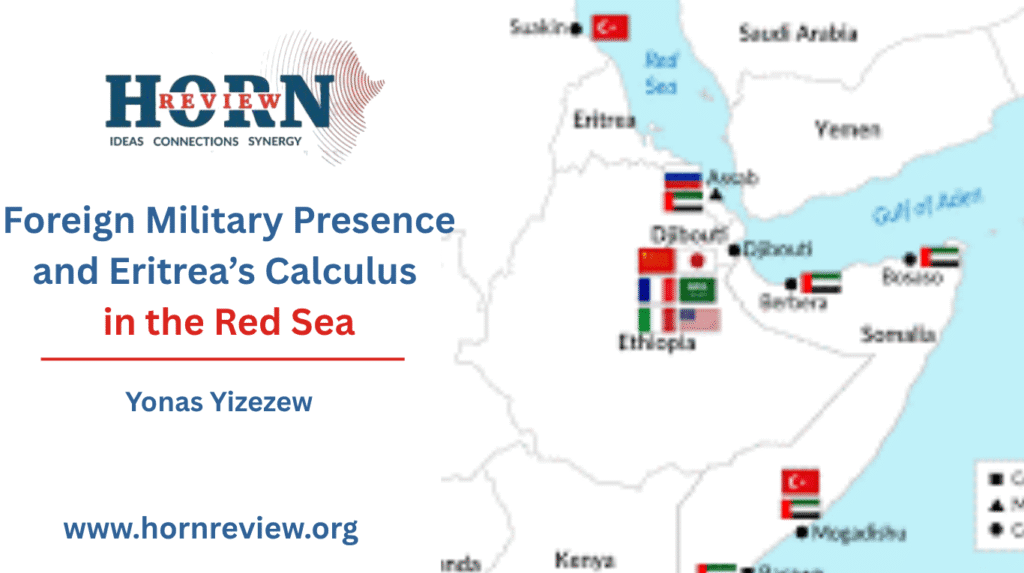The Complex Dynamics of Foreign Military Presence in the Red Sea: Eritrea’s Perspective
The Red Sea and the Horn of Africa represent critical maritime routes that have long attracted global powers eager to influence regional trade and security dynamics. In contemporary times, this complex interplay has manifested in the proliferation of foreign military bases, as nations like the United States, France, China, and several Gulf states establish footholds across the region. Their stated justifications often include countering terrorism and piracy and ensuring navigation freedom—yet these military presences are also deeply entwined with political motivations and geopolitical strategy.
Eritrea’s Critique of Foreign Bases
Against this backdrop, President Isaias Afwerki of Eritrea has voiced a strong critique regarding the presence of foreign military installations in the Red Sea. In a recent interview with an Egyptian television channel, he labeled these bases as sources of instability. He articulated a desire for regional nations to manage their own peace and security, adamantly rejecting the establishment of foreign military bases within Eritrean territory. His position echoes a broader sentiment in Africa and the Global South, advocating for national sovereignty and self-determination amid external pressures.
The Complexity of Eritrea’s Foreign Relations
While Eritrea’s public stance is a call for regional autonomy, the nation’s history of foreign relations reveals a more nuanced reality. Over the years, Eritrea’s foreign engagements have often been dictated by pragmatic rather than ideological considerations. The government has, at various points, entered into security arrangements that effectively allowed access to foreign powers—demonstrating flexibility in its approach based on strategic necessity.
One noteworthy instance is Eritrea’s relationship with the United Arab Emirates (UAE). From 2015 to 2021, the UAE expanded its military and logistical operations at Assab Port to support its involvement in the Yemen conflict. This partnership proved beneficial for Eritrea, providing economic and diplomatic advantages while positioning Assab as an essential operational hub. During this period, Eritrea did not view the UAE’s presence as a violation of sovereignty; it was, at the time, a strategic collaboration. Only after the UAE began withdrawing did Eritrean rhetoric shift, framing foreign bases as inherently destabilizing.
A Pattern of Strategic Selectivity
Eritrea’s foreign policy exhibits a pattern of strategic selectivity where its opposition to external military presence is context-dependent. When foreign involvement aligns with Eritrea’s national interests, the government tends to interpret its non-alignment broadly. Conversely, as its interests change, it reasserts its stance on sovereignty and regional autonomy. This duality complicates President Isaias’s critique of foreign military installations.
Earlier instances also reflect this strategy. In the late 2000s, United Nations reports indicated Eritrea’s security collaboration with Iran, including potential use of its ports for military shipments. Such engagements positioned Eritrea amidst the intricate rivalries of the Middle East, contradicting its later claims that foreign military involvement is damaging.
Recent Diplomatic Maneuvers
Eritrea’s diplomatic positioning concerning the Red Sea appears to emphasize this selective narrative in more recent developments. Amid discussions about Ethiopia’s access to the sea, Asmara has reportedly strengthened ties with Saudi Arabia, offering preferential access to the Assab port area. Though touted as an economic initiative, the implications are strategically significant. By inviting a powerful regional actor into its maritime sphere, Eritrea seems motivated by enduring insecurities and isolation, using external alliances to bolster its position despite public denouncements of foreign military presence.
Implications for Regional Security
This intricate dynamic raises questions about Eritrea’s credibility regarding its stance on foreign military bases. The nation risks being perceived as opportunistic when it condemns practices it has previously embraced. Furthermore, such inconsistencies heighten mistrust among neighboring countries and could entangle Eritrea in broader geopolitical rivalries. This contradiction hampers efforts to establish a cohesive security framework in the Red Sea.
Next Steps for Credibility and Stability
To strengthen its position against foreign bases and promote regional stability, Eritrea could consider several practical measures. First, transparently disclosing the terms of any national or military partnerships would enhance its credibility. Additionally, engaging constructively with regional institutions and participating in cooperative security frameworks could foster trust. Collaborative efforts with countries like Ethiopia, Sudan, and Djibouti would be vital in building a collective security environment driven by transparency and mutual respect.
Establishing a consistent approach rooted in a shared vision of security and sovereignty would not only bolster Eritrea’s credibility but also provide a more stable and cooperative approach to regional security in the Red Sea.
Conclusion
Eritrea’s complex stance towards foreign military bases underscores a duality in its foreign policy, revealing a trend of pragmatic opportunism wrapped in the rhetoric of sovereignty. The nation stands at a crossroads, where principled advocacy for regional stability must align with genuine diplomatic practices. Ultimately, Eritrea’s future relationships within the Red Sea’s evolving geopolitical landscape will depend on its ability to navigate these complexities and foster genuine partnerships founded on mutual trust and transparency.
For further information on the geopolitical dynamics of the Red Sea, refer to Carnegie Endowment and VOA News.
